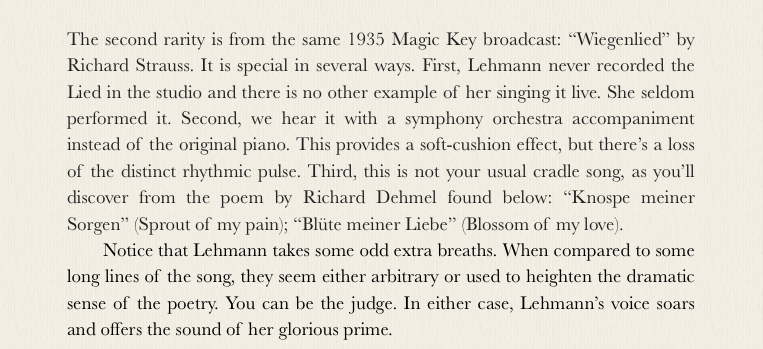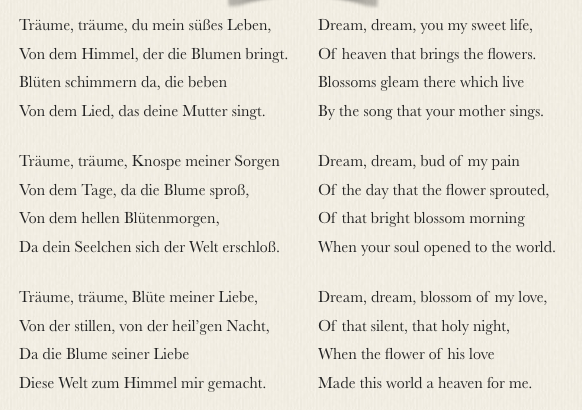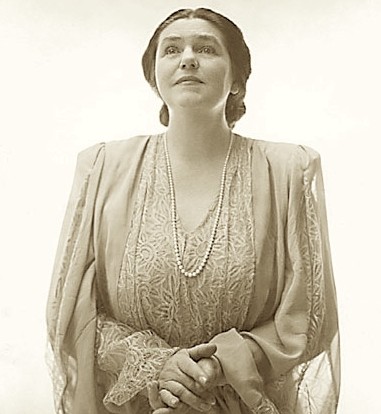Lotte Lehmann & Her Legacy: Volume 2
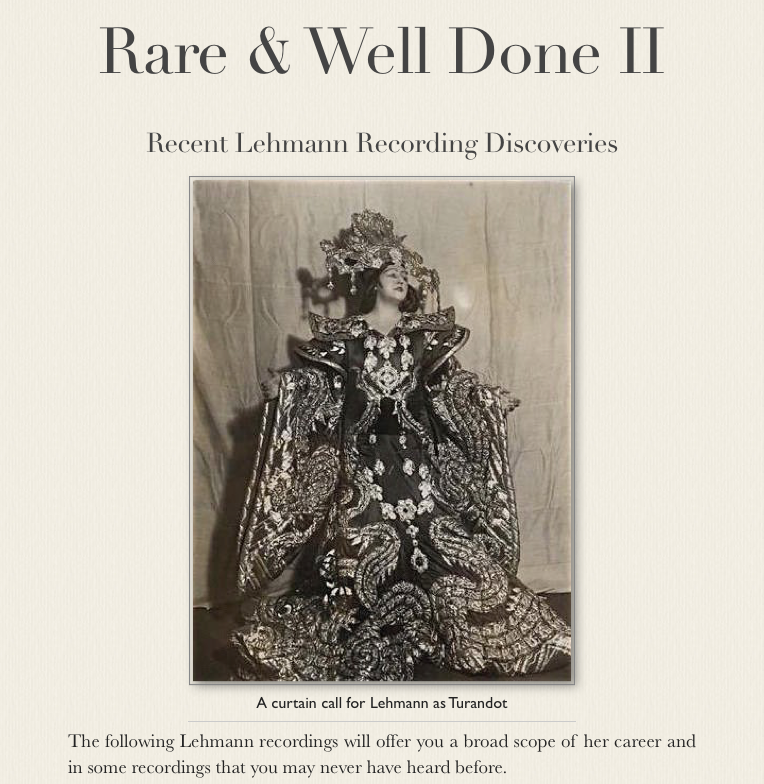
We’ll begin with two takes of a 1924 recording session that was prompted by the success Lehmann was having with Korngold’s Die tote Stadt in Vienna and Berlin. The recorded duet with Richard Tauber from that opera was such a triumph that it has never been out of print. However, her solo aria from Die tode Stadt, “Der erste, der Lieb’ mich gelehrt” (The First To Have Taught Me Love), didn’t fare so well. The grooves of the wax wobbled with Lehmann’s high C so it sounded strange when the 78 was published. (This was before the microphone was employed.) The conductor, George Szell, was patient enough: four takes were made. Now, thanks to Ward Marston, who sent us these, you have the chance to hear takes one and two.
Now, for “test pressings” that I’ve assembled. Test pressings are made for the artist(s) to hear (and approve or disapprove) before publication. They are also held by record companies when publication isn’t going to happen. The result is that these one-sided discs may have clean, undamaged surfaces and offer excellent sound, even if they are 75 years old or more.
The test pressings sent from the archives at Stanford University have both excellent sound and a photo of the Victor label. You may read that they were unpublished, and that was the case in the 1930s or 1940s, but they were eventually released on CD as part of the RCA Victor Vocal Series in 1989.
These records were bought by Stanford University and held at the Archive of Recorded Sound at the Braun Music Center. They haven’t been played in all the years they were so carefully stored there. After the Sound Archives Librarian Jonathan Manton, you are the first to hear these vocal rarities in this pure a form.
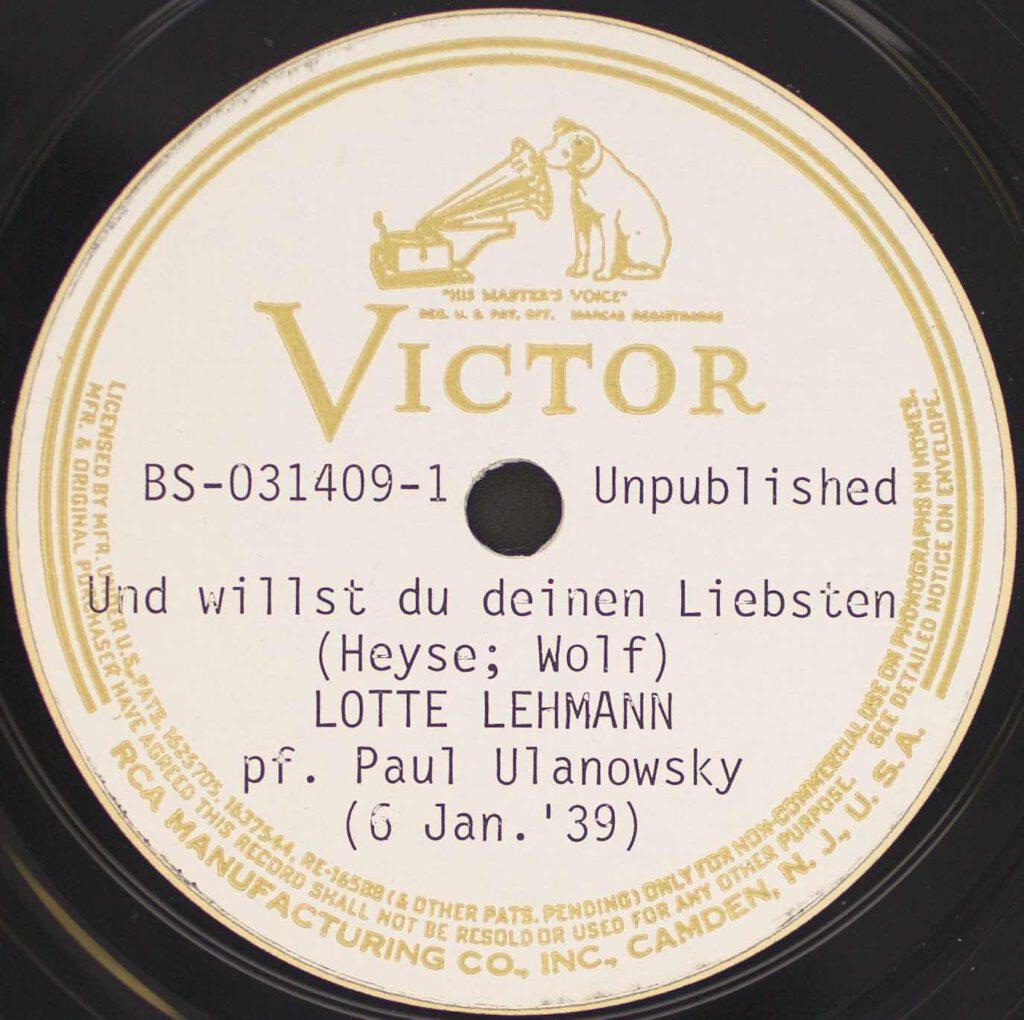
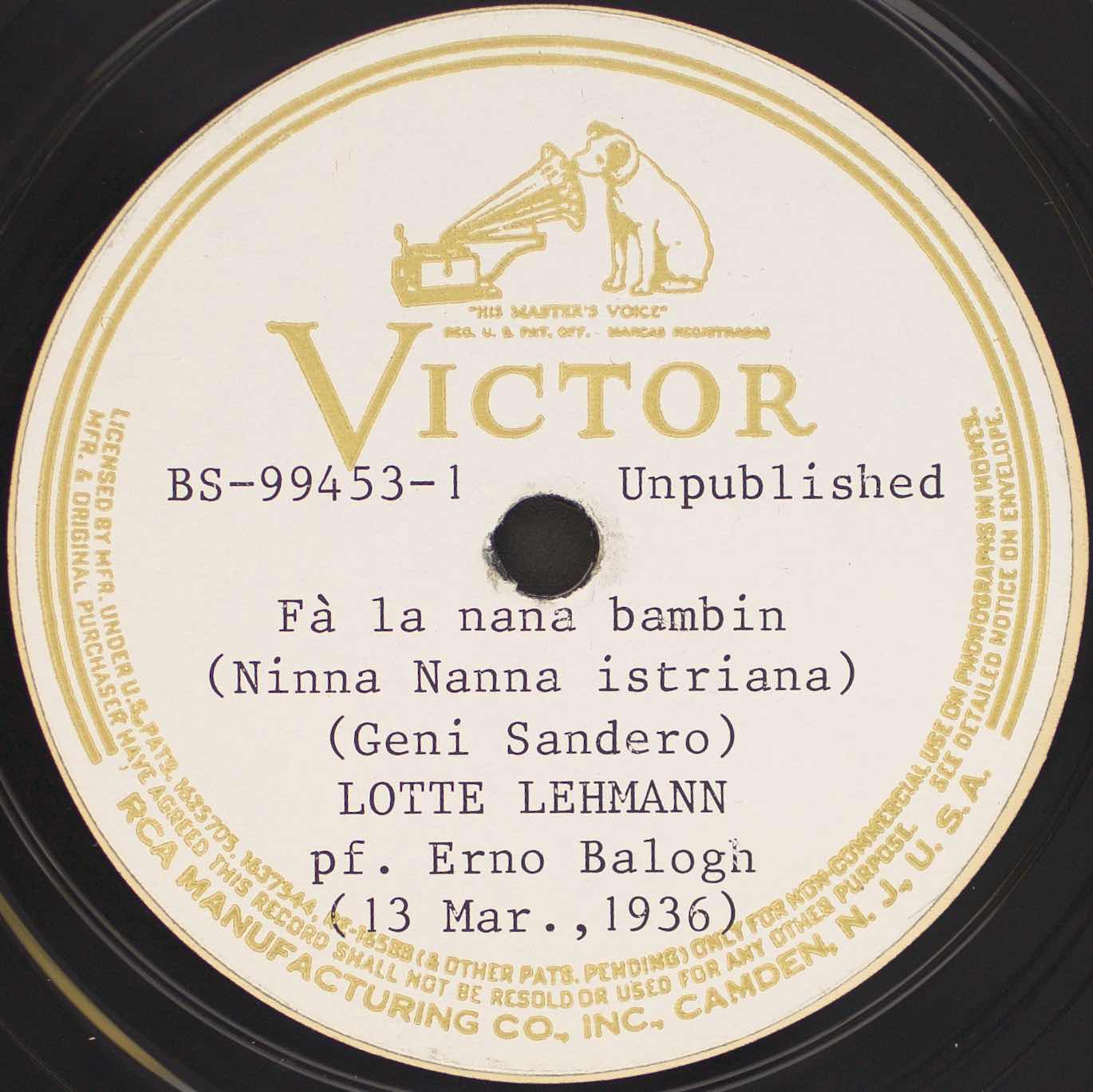
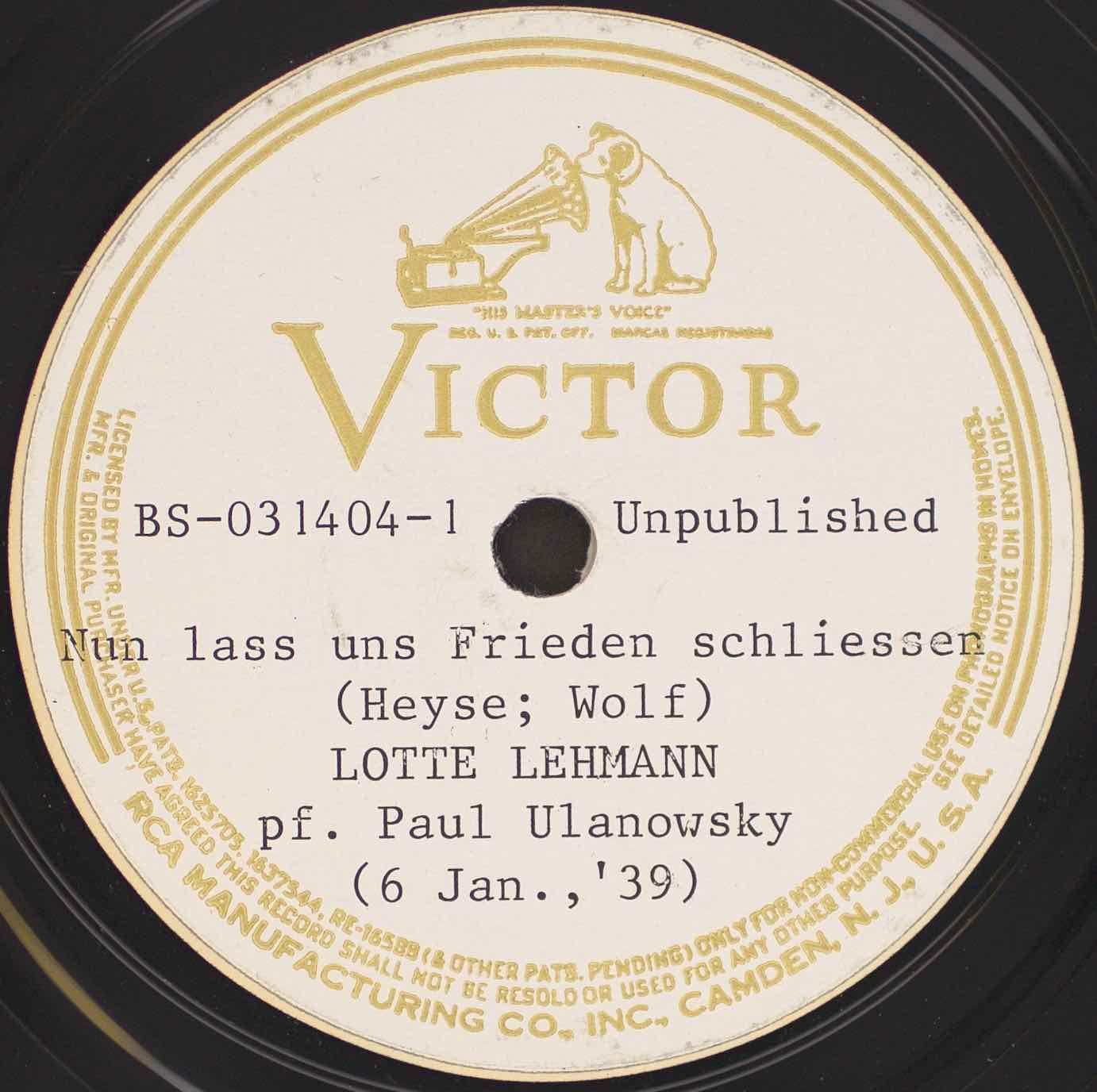

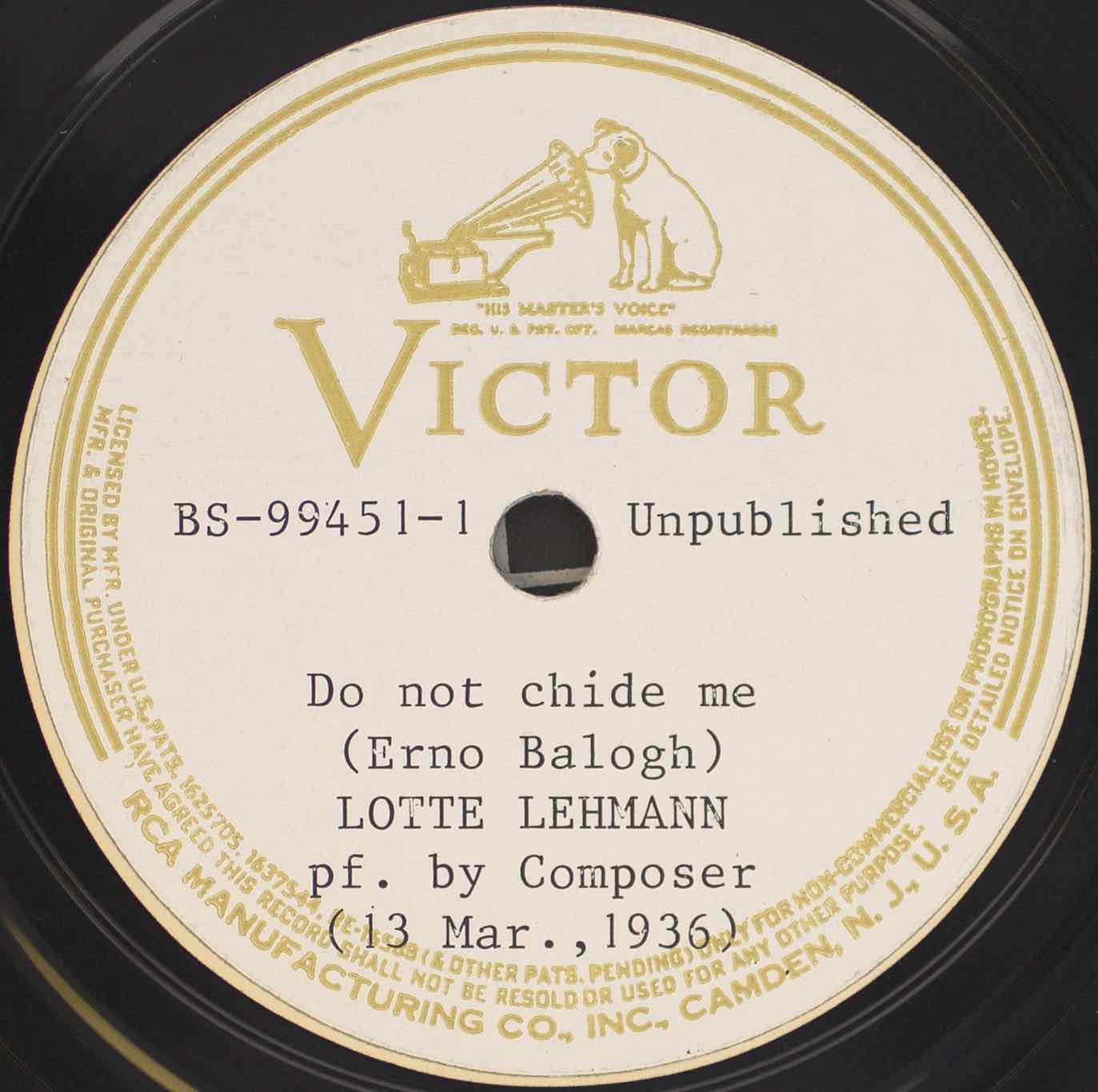
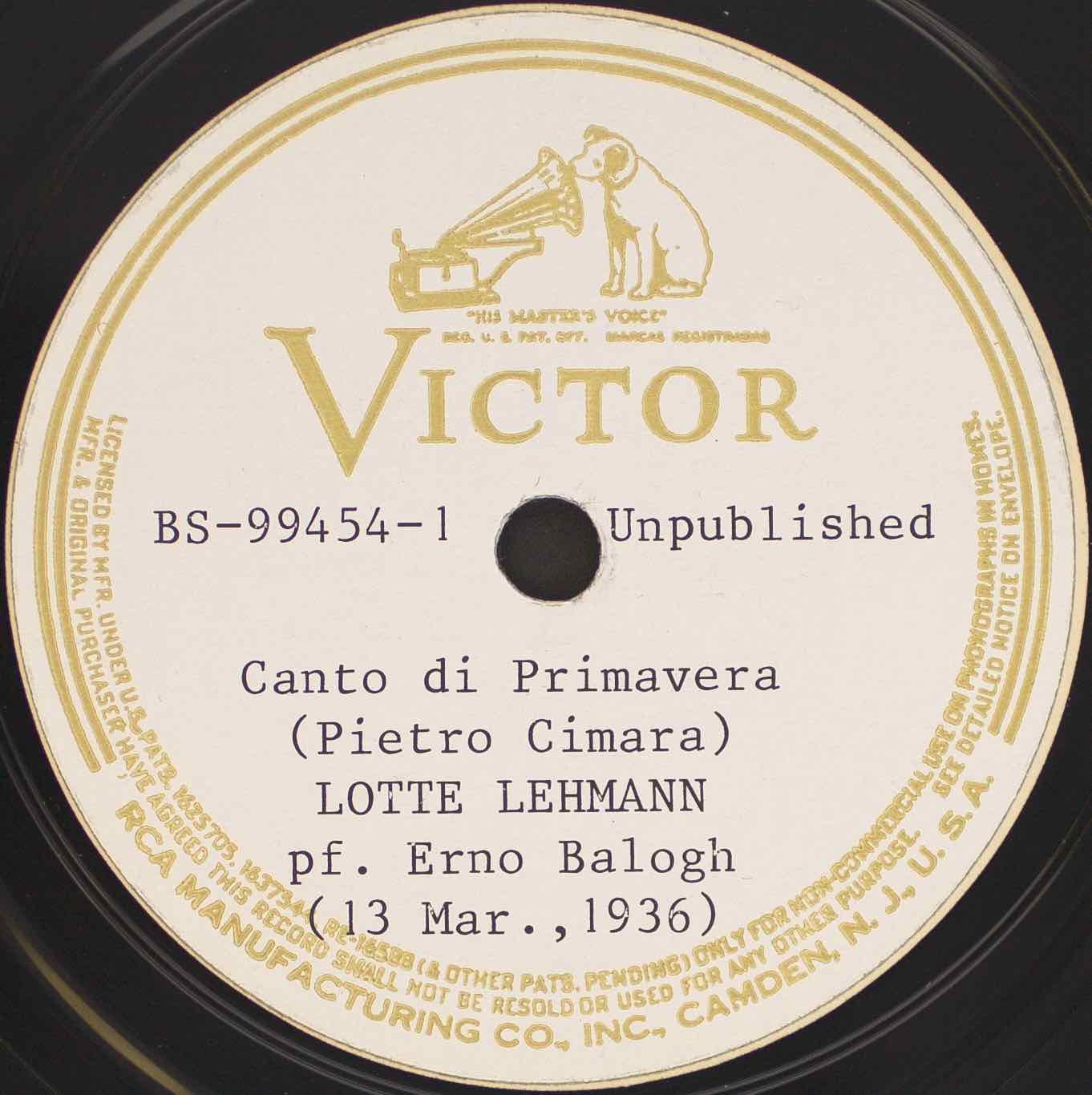
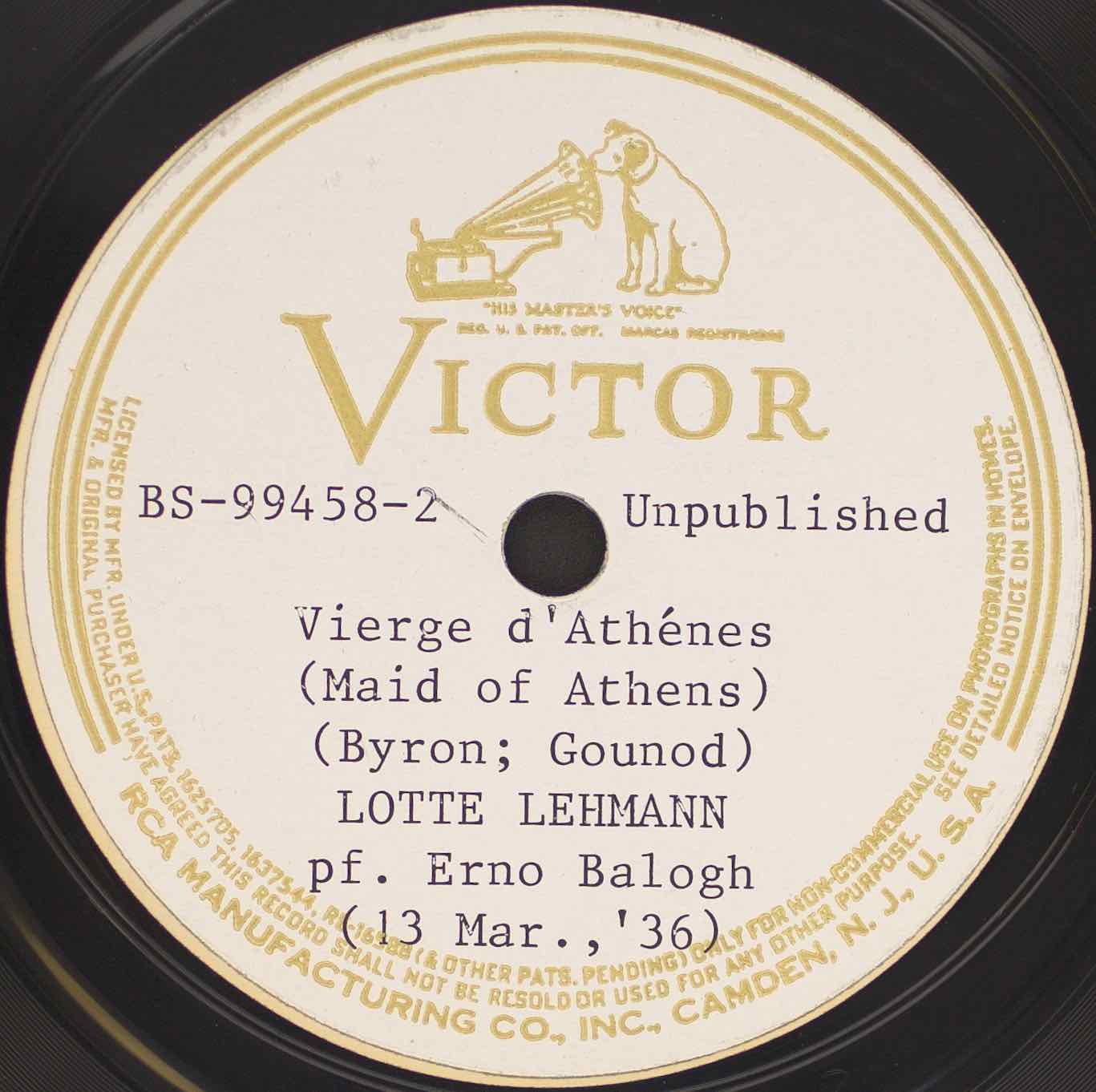
The following test pressings were sent from the Lehmann Archives at University of California Santa Barbara. We don’t have the labels, but it’s still exciting to hear them. They begin with “So lang hab’ ich geschmachtet” (Crudel, perché finora farmi languir così) from Mozart’s The Marriage of Figaro in a 1920 acoustic recording with Heinrich Schlusnus as Figaro. As you’ll hear, he certainly matches Lehmann for charm. How this test pressing has defied the odds and survived to be enjoyed in the twenty-first century is beyond my ken. Of course, one can hear CDs of the recording, made however from 78rpm shellac pressings, far removed from this test pressing. All test pressings must endure the slings and arrows of outrageous time: scratches, scrapes, and wear.
From 1941 we hear Lehmann sing Mozart’s “Sehnsucht nach dem Frühling” (Longing for Springtime), a kind of children’s folksong and his “Warnung” (Warning), both on the same disc. In this recording Lehmann keeps the folk song feeling and does little to remind us that she’s an active opera singer. As in the following recordings, Ulanowsky is the pianist.
The next three titles were recorded in 1947: Schubert’s “Der Jüngling an der Quelle” (The Youth at the Spring), “An die Nachtigal” (To the Nightingale), and “Die Männer sind mèchant” (Men Are Evil).
You may hear “Der Jüngling an der Quelle” again in the “Comparisons II” chapter in even better sound. This was one of Lehmann’s favorite Schubert songs which she sang often in recital. Her diction, as usual, is exemplary.
Listen for the way Lehmann is able to change the quality of her voice when the Lied arrives at: “Nachtigal, ach…” The plaintive sound of the minor key is reflected in her tone, as she pleads to the ever-present nightingale.
These three titles were almost the last recording sessions of Lehmann’s soprano career, the final one occurring in 1949. She was fifty-nine, but just listen to the fun in her voice in “Die Männer sind mèchant” as she recounts the oft-repeated story of a girl telling her mother what that evil man has done to her. Her coquettish way with this song brought forth real laughter from her recital audiences.
From the Lehmann archives at the University of Missouri, Kansas City, we can enjoy Lehmann’s talk given at the Music Academy of the West in 1955. This almost half hour-long address commemorates her attendance at the reopening of the Vienna Opera, also in 1955.
It opens with Lehmann’s pupil Shirley Sproule singing “Wien, du Stadt meiner Träume,” words and music by Sieczynski.
I’ve edited the tape to shorten applause and laughter. Lehmann admits that this talk will be all about her, and doesn’t make any apologies about that. Anyway, she’s a great storyteller. By the way, it amazes me that this four-reel lecture has survived so well. It sounds as if it were recorded yesterday. Many thanks to media producer Scott Middleton.
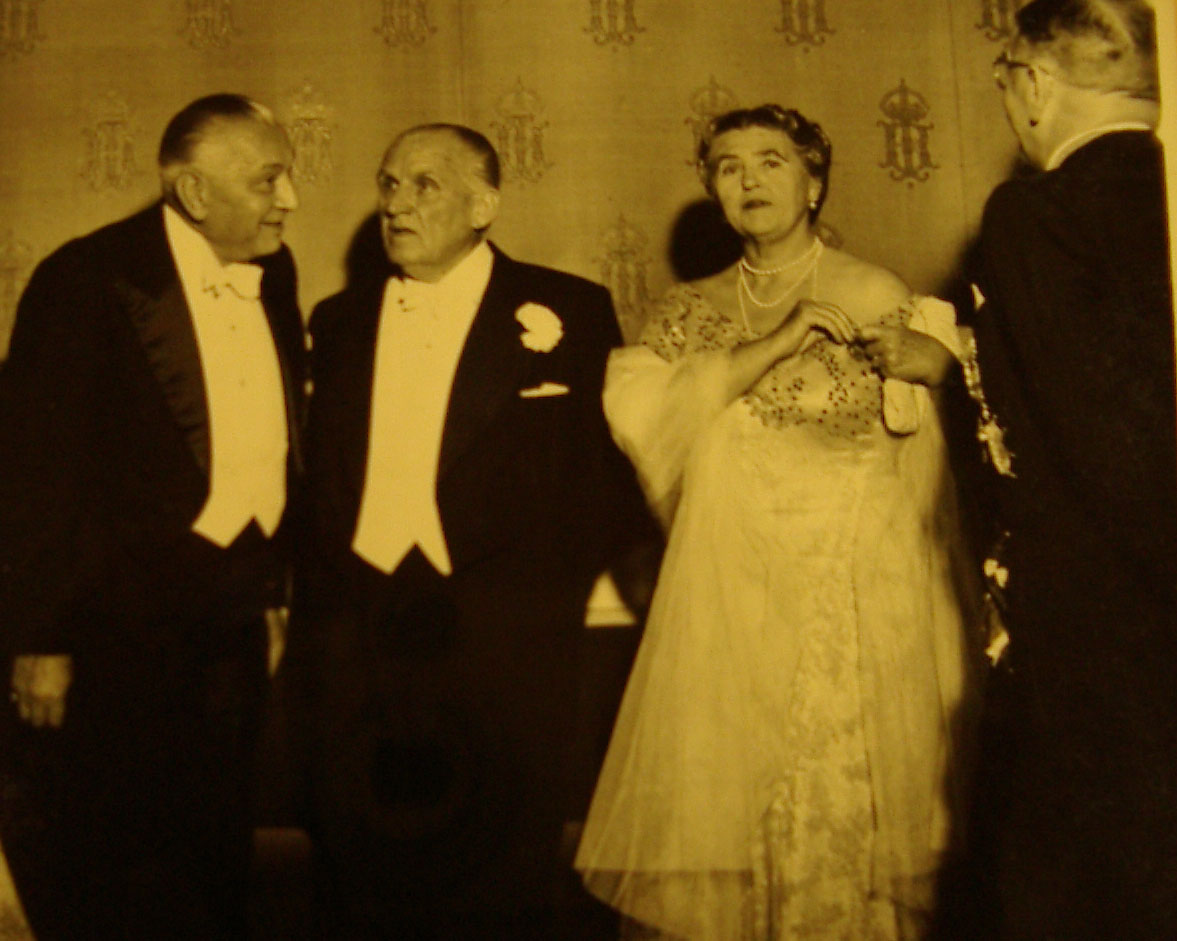
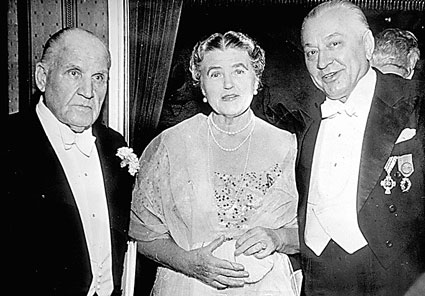
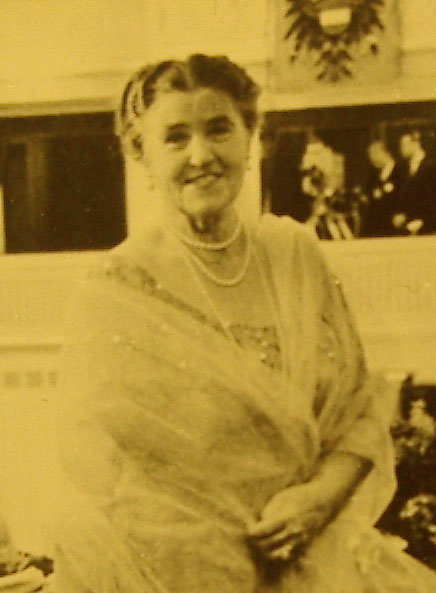
At one of the many master classes that Lehmann gave at Northwestern University, she was asked to “sing” a song. This was 1969, long after she’d really sung. She demonstrated an octave or two lower in her classes, and so that is how she sang this “Mainacht” (May Night) of Brahms, along with her usual master class English translation of the poetry. Lawrence Davis was the pianist.
She would be very upset with me for allowing you to hear what she called her “old, croaking voice.” I do it to show how much expression even such a voice can bring to the song. Notice how the voice improves in the second and third strophes. Lehmann would be happier if told that I’m including her 1941 studio recording of the same song with Ulanowsky.
The poetry that inspired Brahms was written by Ludwig Hölty.
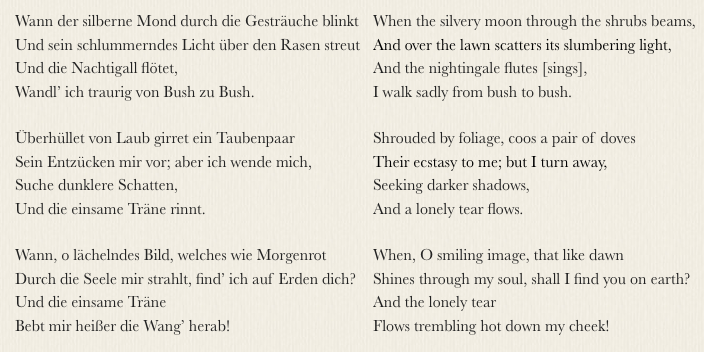
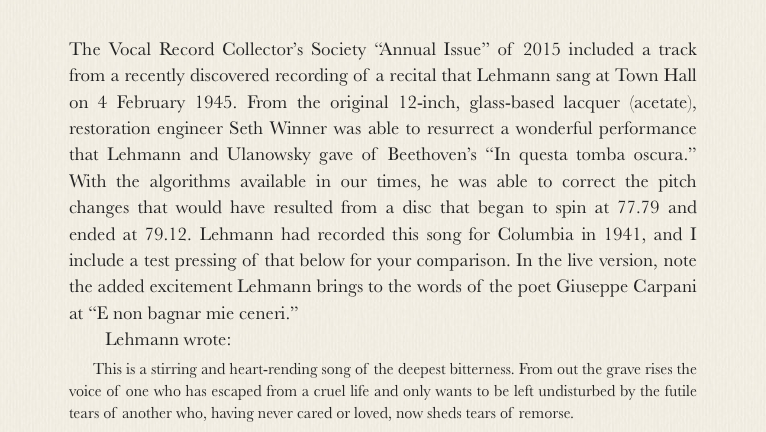
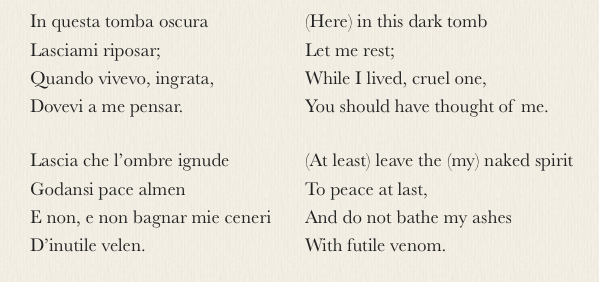
The following two examples of Lehmann’s art are presented here for the first time since they were broadcast in 24 November 1935 on the Magic Key variety program. The NBC Symphony Orchestra is conducted by Frank Black. We hear first “Einsam in trüben Tagen” from Wagner’s Lohengrin. The introductory music is usually eliminated to allow the aria to fit on the two sides of a 12-inch 78rpm disc. In this case we hear it as Wagner wrote it, along with the interlude music in which other cast members would comment on Elsa’s dream. Missing are those comments.
